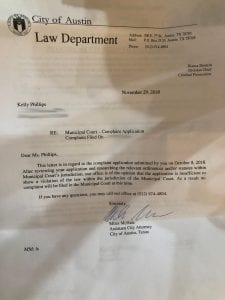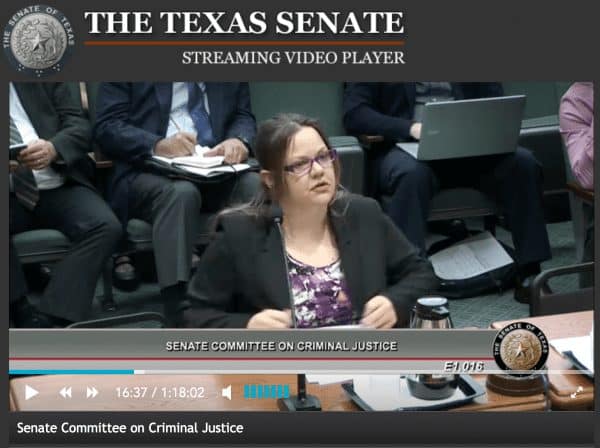One Woman’s #MeToo Moment (and Why It Matters for Companies Everywhere)
By working at Mitratech during this era of #metoo and #ethicsrising, I’ve become acutely aware of how I should stand up to the day-to-day injustices that I observe or experience directly.
This story, specifically, was born out of my personal and growing intolerance of unacceptable behavior, no matter the “grey areas” the law allowed.
I started at Mitratech in 2017 on the Marketing team. My job focuses on the operations and demand generation components of marketing campaigns for technology products that help companies digitally transform their legal ecosystems, control risk, and stay compliant with regulations and industry best practices. And I take a leadership role in analyzing and reporting what our Marketing team has accomplished in the way of our Key Performance Indicators (KPIs) – qualified leads, marketing-generated pipeline and closed business, and others.

But my own personal experience with harassment made it clear how there’s so much work left to be done outside of corporate walls, and how I could really take action to make change happen.
The incident
During a haircut appointment in 2018 at a salon I hadn’t visited before, I was inappropriately touched multiple times by the stylist. There was no mistaking that it was intentional and it left me feeling victimized and traumatized.

His prior conviction wasn’t in some in-between-ish situations where she was 17 and he was 18. Rather, the victim was 14 and he was in his mid-50s. And the public record indicated he was required to regularly check in with the authorities for the rest of his life.
This made me feel even more disgusted and angry. It was bad enough there were no warnings posted at the salon, but that was not quite as awful as the fact there was one piece of signage: The sign on its front door that said, “We welcome children”.
The official response? Not nearly enough
The police looked into it. But they warned me from the start that the charge would only be “Assault by Contact,” recognized under Chapter 22 of the Texas Penal Code as only a Class C misdemeanor, a very minor charge that’s akin to a speeding ticket, decided by the municipal (not criminal) court.
If found guilty? He’d pay a small fine.
I also reported him to the TDLR (Texas Department of Licensing and Regulation), but they informed me the incident was not in violation of his license.
I was saddened and disheartened. If this had happened to me five years ago, I might not have reported it at all. The sad truth is that many people (especially women) grow accustomed to this sort of disgusting behavior.
Looking back, I think I was complacent for too many years. I truly believe that the groundswell of pissed-off victims, by speaking out through #MeToo and other channels, has given others support in speaking out and taking action themselves.
I have a daughter now…I asked myself, would I be OK with her swallowing the shame and staying quiet? Absolutely not. We can do better. We can be better.
It was time to stand up for change
I was reading local news one day and came across a story more egregious than mine that had resulted in the same underwhelming, inadequate punishment.
I was very sad for Joshua McBride, the man who’d endured this atrocity. Yet I was also so happy he’d taken it upon himself to work with others to amend the law – specifically, the Texas Association Against Sexual Assault (TAASA). I reached out to him on Facebook, thanked him for his courage, and shared my story.
We formed a quick bond, and he kept me in the loop on the great work TAASA was doing in advocating for changes to state law that would create and clearly define a new crime, “indecent assault,” with stronger penalties for actions such as groping and others I’d just as soon not detail here.
In early March 2019, Joshua informed me that the amendment TAASA had been working on with two state senators who acted as sponsors, Charles Perry (R) and Carol Alvarado (D), had been finalized and was being presented to the Texas Senate Criminal Justice committee as Texas Senate Bill 194.
On March 19th, I went down to the senate hearing for this bill, and registered to give my personal testimony. John Whitmire, the Chairman of the Senate Committee on Criminal Justice, was very interested in my story, and the fact that a convicted sex offender was still permitted to cut hair. Others, too, stood up and shared their own stories. You can see my own testimony at the 16:15 mark of the video from the hearing.
The committee voted unanimously to send the bill to the full Senate. On March 27, it was voted on there, and I’m glad to say SB 194 passed – once again unanimously.
On April 1, the Texas House of Representatives will discuss their own version, HB 309. And I’ll be there.
The message for corporate America?
This may not have gotten the big media coverage of something like the Google Walkouts, but the fact there was a grass-roots campaign to push for change to state laws that had been stuck in the past for so many years? To me, that’s a sign that the attitudes and awareness that have been driving the #MeToo movement, or other fairness and compliance causes, are becoming a lot more common. These are becoming broad movements, societal shifts.
Any organization that doesn’t take them seriously, and doesn’t work to stay in compliance with regulations, and aligned with consumer and employee attitudes, is asking for serious trouble. That goes beyond the big headline scandals at companies like Facebook, or Uber, or in Hollywood.
Just check out the uproar over the college admissions scandal to see how ugly it is when – in the case of the schools – your employees and coaches get caught avoiding compliance, demonstrating preferential treatment, or otherwise not following the rules. Your reputation suffers because you were content to look the other way.
At Mitratech, we stand squarely behind #MeToo and the values it represents. As we remind our clients, these movements aren’t obstacles but opportunities for a company to show they’re sincere about creating a culture of compliance where everybody can feel safe, secure, and able to thrive. I’m glad I’m able to have a part in that, not only on the job but in the world outside.





